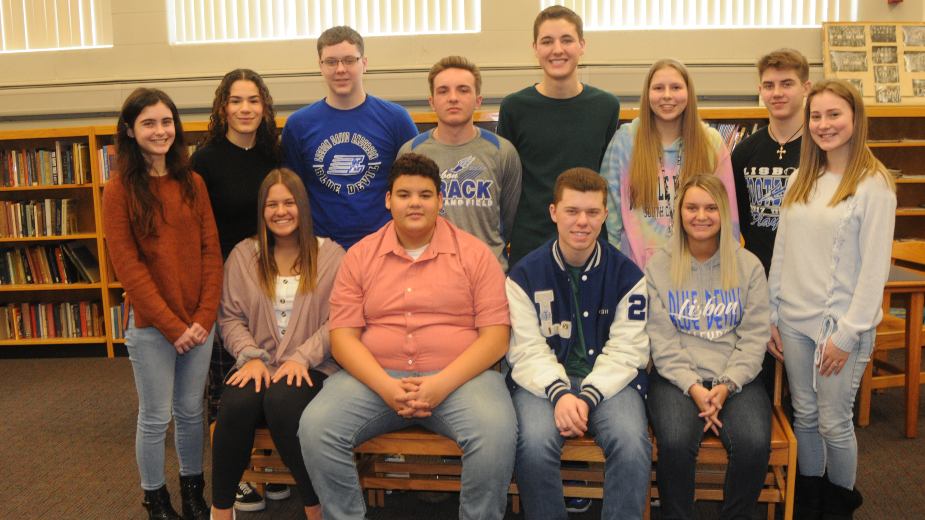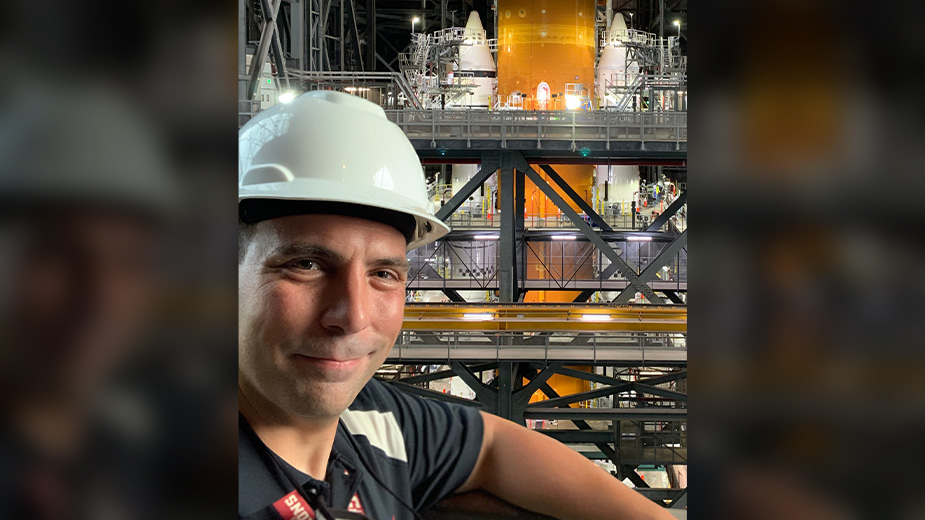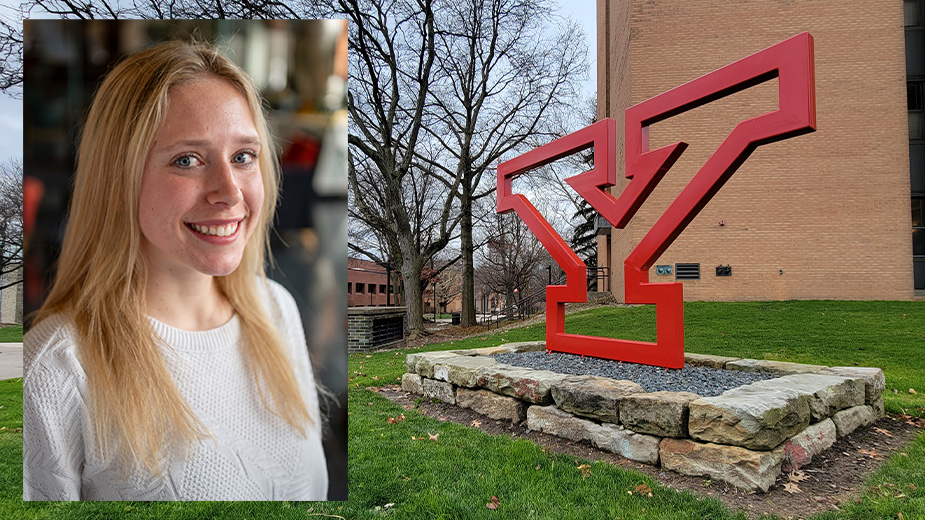Students Ask Older Generations to Give Them a Chance
LISBON, Ohio – Students from David Anderson Junior/Senior High School say stereotypes older generations have toward them of not wanting to work and being too focused on their phones are unfair, and they just want to be given a chance.
“The current working generation and people closer to retirement that are a little leery of our generation, I feel, think that the way we think and learn is very different as opposed to current methods,” said junior Aaron Hinchliffe. “Because I look at companies like Microsoft giving people days off and their productivity goes up. So, I think the ways we think and the ways we’ve been accustomed to in high school is very different. To them, thank you for paving the way and just give us a chance.”
The students from grades nine to 12 took part in a panel discussion as part of Brain Gain: Building a Culture of Entrepreneurship and Workforce Development on Feb. 20. Part of The Business Journal’s 15-month program is meant to give young people a voice in what is needed to keep them from leaving the area, to share their dreams and what communities can do to keep them engaged.
Lisbon students shared their thoughts about future educational ambitions, what schools are doing to help and what they could do better. They also discussed how generational differences in how they think, learn and work shouldn’t be viewed negatively by older adults nor interpreted as if they don’t want to work and succeed.
Hinchliffe pointed out that his generation may work differently, but it is achieving the same workplace goals.
“I feel like there’s a stereotype of not being ready to be able to go out and work, but I don’t believe that’s the case 100% of the time,” he said.
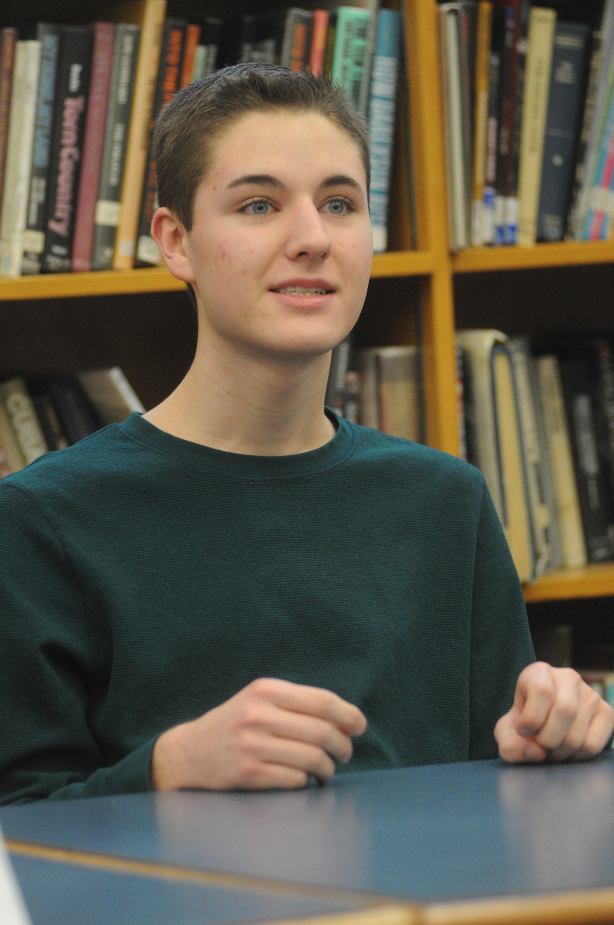
Trenton Kliner, senior, said social media plays a big factor with a lot of the disconnect. Asked how to fix the issue, Kliner said Facebook would be a good meeting ground for generations.
Senior Casie Brandt said kids being on cell phones and social media gives them opportunities.
“It’s not taking away from still being person to person. That still happens, it’s still a thing. It’s just easier to connect with people online and then meet. I feel like there’s a stereotype like ‘Oh, wow that’s really bad, don’t do that.’ But it’s helpful,” Brandt said.
James Walter, a freshman, said it’s OK if older generations don’t want to learn technology, but they should also understand technology is the way younger generations learn, develop and work.
“There’s definitely a stereotype against the younger generation that some of us don’t want to go out and get jobs and don’t want to work because we’re so into video games and the technology,” said Brianna Steele, junior. “But the majority of us do. We’re ready to go.”
“And even it changes the way the older generation is doing things,” she added. “If they don’t want to change and use our technology, they don’t have to; it’s their option. instead of saying the younger generation is going to ruin everything, give us the chance to show we’re ready for what’s ahead of us.”
Walter says more education on technology for older generations wouldn’t be effective because they are too ingrained in doing things a certain way for so long. When asked if he believes kids have a stereotype toward older generations, Water said maybe.
“People can learn to use our technology but if they don’t want to, they don’t have to. They can stick to their old ways whatever they want to do, that’s what they want to do,” Water said.
The majority of the 12 students indicated they plan to attend college for their careers of choice, which included accounting, insurance, nursing, astronomy and physics and dental hygiene. Others, like Zane Tullis, are looking to enter the trades. Tullis, a junior, also attends classes at the Columbiana County Career and Technical Center and plans to enlist in the Air Force after graduation.
Tullis says if, for some reason he doesn’t get accepted into the military, he would go into the trades or agriculture. He lives on a farm now and does a lot of mechanical work on machinery. Being a farmer is something he enjoys, and said he doesn’t think most people have an appreciation for farmers and how much work goes into farming.
Hunter Sturgeon is interested in becoming a plumber or electrician. He visited the career and technical center and liked what he saw, he said.
Remaining local to be near family is important to most of the students. They like the idea of attending either Youngstown State University or the Salem branch of Kent State University.
Steele, who wants to become a pediatrician, said she would stay in Ohio to earn her degrees, but wants to go somewhere with warmer weather.
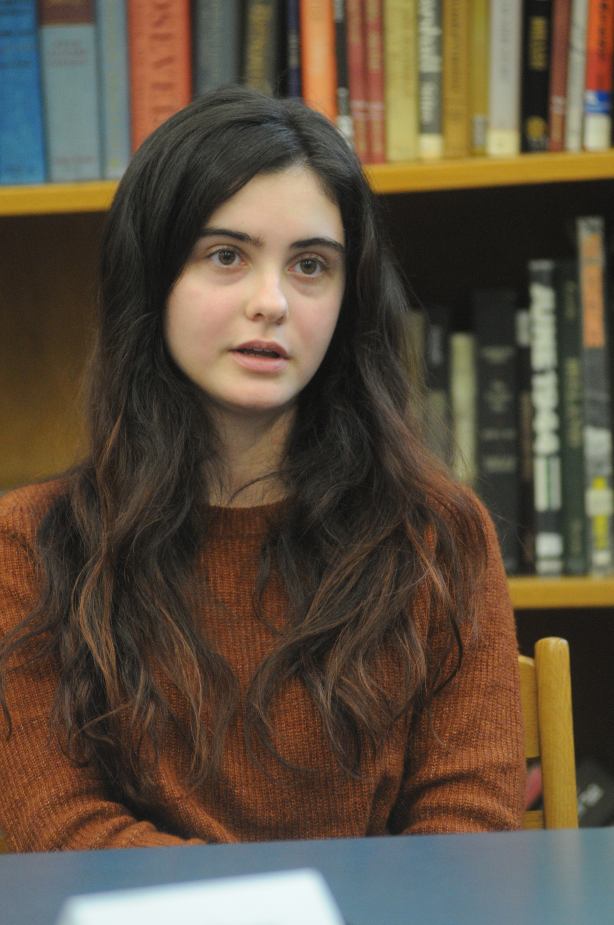
Kara DiLudovico, a sophomore, wants to be an astrophysicist or astronomer. She is looking at colleges in Pittsburgh or Maryland.
“I’m still looking for more information and trying to find a college. I know what I want to do,” she said. “Sometimes I really want to stay with family, but I feel there are more opportunities out of state.”
She says she would love to work at NASA, or somewhere that has an observatory. She was influenced after meeting a woman who was earning a doctorate at Johns Hopkins University and was the director of an observatory there.
“I would love to have a job like that,” DiLudovico said.
Jade Crooms, a sophomore, wants to be a nurse. She wants to remain local to be close to her family, but if an opportunity came up in a metropolitan area, she said she would go.
Brandt, a senior, is going to YSU for dental hygiene.
“I just want to do something that I could definitely stay local and have a job, but also to be able to go anywhere and still be able to have a job,” Brandt said. “Also I don’t want to go for a ton of school and have a lot of debt, so I want to go for something to get a bachelor’s degree and not have to go further than that.”
She said stability is important to her as far as a career. “I don’t want to be worried about a job that’s going to be taken away by furthering technology.”
College debt is definitely a concern for those who want to further their education.
Laura Waters will attend KSU-Salem. She says cost is a factor because her mom will mainly be paying for her schooling. Waters has applied for some scholarships, but most likely will rely on student loans.
She is interested in going into insurance because there is a high demand, especially for women, but may end up in social work like her sister and mother. Asked what her dream job is, she jokingly said, “I don’t know, probably not to have a job.”
Steele says finances are a concern. “Even if I have to pay off loans for a while in my life, it will be worth it to be in the career I want to be in,” she said.
Haiden Colvin, freshman, is interested in engineering or manufacturing. He said working in a factory is a possibility and he knows jobs are available, but he said he is being steered toward college. Though earning a college degree can get expensive, Colvin believes having a degree will offer him more opportunities and more doors would open rather than having just a high school degree and trades certificate, he said.
Being pushed toward college instead of the trades or the military is something Tullis said high schools can improve upon.
“All I’ve heard about since I was a freshman is ACT, ACT, ACT. I took the ASVAB and it changed my life,” Tullis said.
The Armed Services Vocational Aptitude Battery (ASVAB) measures general knowledge a student acquires in high school. It is the entrance exam for the military used as a recruiting tool and used to determine aptitude for various military occupations.
However, school counselors are encouraged to give the ASVAB without revealing to students that it is associated with the military as it matches abilities with career paths and not just what may be of interest to a student.
Tullis says the area holds many opportunities for students in trades such as pipefitting, iron working and welding, machining and apprenticeships, but feels like not enough opportunities exist for students to develop an interest in trades.
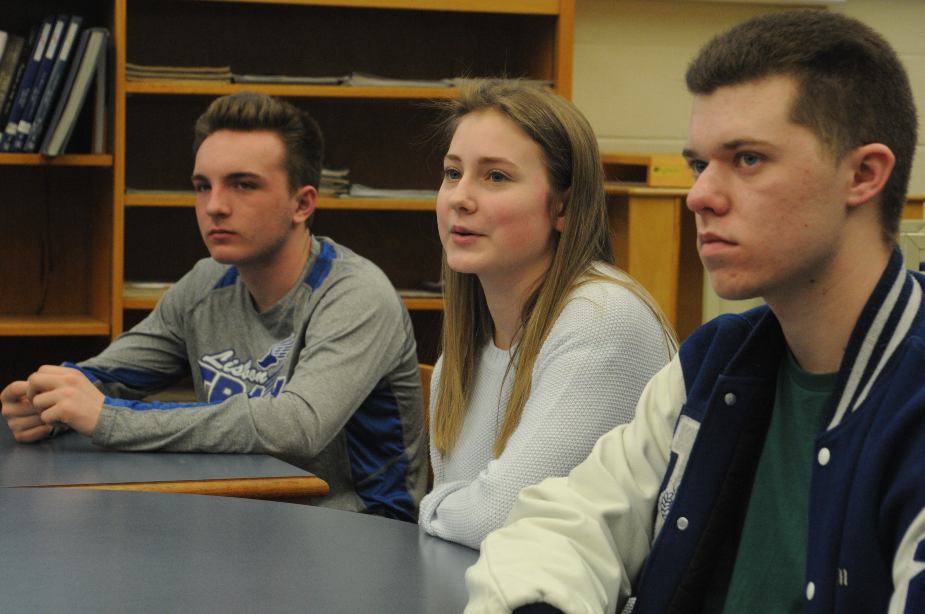
When asked what he thinks schools can do, he suggested bringing people from the trades and unions to talk about apprenticeships and what else is offered besides college.
He says stigma toward trade school could be a reason that students want to pursue college.
“My grandparents’ generation, everybody was in trades and my parents’ age kind of split. Now, everybody’s going to college,” he said. “I think there’s a bad label with trades. I get it from people, ‘Oh, you’re a career center kid.’ They label who goes into trades as if they’re not skilled enough, not smart enough, don’t have enough money to go to college. I don’t think that’s true. It’s just a label.”
Freshman Adyson Andric agrees that a stigma exists. She says she has always wanted to go to college so she looks into those options more. She wonders if the school does offer those options and maybe she’s just not paying attention.
Steele added that the military isn’t pushed as much. She says military recruiters are set up outside of the cafeteria at times, but going to college is pushed more.
“Not everybody needs to go to college. Not everybody needs to be pushed toward college because we need people to do agriculture stuff, we need farmers, we need plumbers and electrical. It’s definitely important too,” Steele said.
School officials say students are taken for visits to the career center in eighth and 10th grades and have had some people talk to them about trades. The military is brought in several times and they set up booths in the cafeteria for students to visit. Principal Keith Edenfield says maybe officials need to think a little more outside of the box when it comes to trades and military, but also says some of the push toward college students are talking about is societal and not only in the school environment.
Sturgeon says it would be nice to have people from the trades come in and talk to the students.
“My mom went to college for accounting and my dad learned a trade. My mom’s not even working in what she went to college for and I don’t want to be paying debt on college where I’m not even working in what I paid to learn,” Sturgeon said.
Pictured above: David Anderson Junior/Senior High School panelists included (back row from left) Kara DiLudovico, Jade Crooms, Hunter Sturgeon, Zane Tullis, Aaron Hinchliffe, Brianna Steele, Haiden Colvin, Cassie Brandt, (front row from left) Adyson Andric, James Walter, Trenton Kline and Laura Waters.
Copyright 2024 The Business Journal, Youngstown, Ohio.
